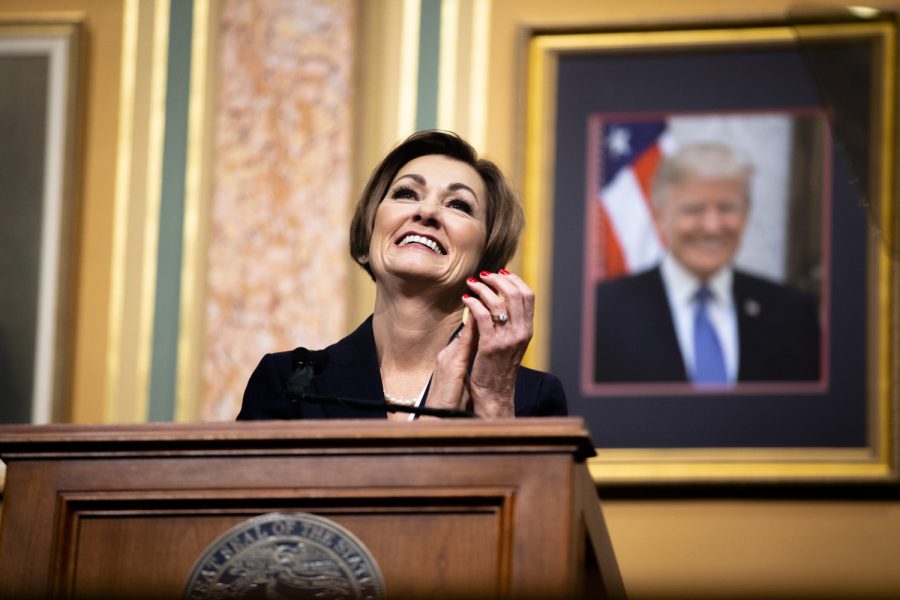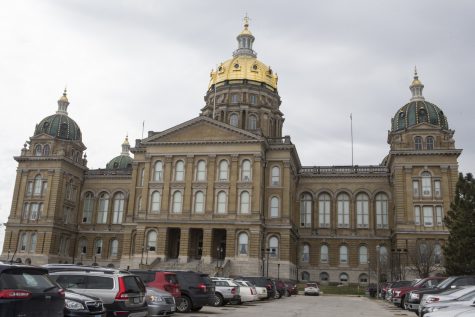Opinion: Occupational licensing hinders workers instead of helping them
Reform is on the legislative table this session, and it has the opportunity to help numerous skilled workers make a better living for themselves.
Gov. Kim Reynolds smiles during the Condition of the State address at the Iowa State Capitol on Tuesday, Jan. 14, 2020.
February 23, 2020
A recent policy event on occupational-licensing reform hosted by Americans for Prosperity shed light on the red tape that hinders success instead of incentivizing entrepreneurship.
Guest speaker and The Gazette columnist Adam Sullivan gave key points on occupational licensing and its necessity in certain fields, such as for electricians, architects, and doctors. But when it comes to hairdressers, little league coaching, and lemonade stand owners, the government goes a bit too far and reaches only one goal: hurt people who may need help the most.
For those of us in college, we acknowledge that licensing may be a part of our futures. The state may require us to obtain a license to work in law or medicine and may only pose a small barrier before reaching our destination career goals.
For skilled workers just starting out in their desired careers, a license may prove to be a tremendous barrier that can hinder or flat out block one from reaching their goal. Unrealistic hours, fees, and regulation all come together to deny qualified workers honest work.
If state lawmakers want to see the effect of their bureaucratic red tape, they can be directed to the story of William Burt, a barber looking to reenter society with hair-cutting skills he learned in prison. Iowa law, though, makes it impossible for him to legally operate his mobile barber shop — where he is able to take his skill and service to those in need of it. His dream and reentrance to society are impossible to compete with the government breathing down his neck.
Gov. Kim Reynolds highlighted Iowa’s nonsensical licensing rules in her recent Condition of the State address, and called on lawmakers to reform them. Right now, our state licenses barbers, and applicants must have more than 2,000 hours of experience before they can even apply.
By the time they are able to legally work, they will already be behind.
Lawmakers in Des Moines will see legislation on licensing reform within the next few months, and they should be encouraged to vote in favor of skilled workers, not against them.
Columns reflect the opinions of the authors and are not necessarily those of the Editorial Board, The Daily Iowan, or other organizations in which the author may be involved.




















